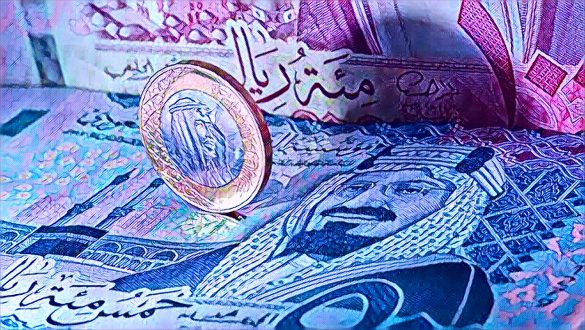239
Saudi Arabia achieves a significant milestone as non-oil revenue reaches 50% of its Gross Domestic Product (GDP), marking a pivotal shift in the kingdom’s economic landscape. This remarkable development underscores Saudi Arabia’s efforts to diversify its economy away from reliance on oil exports, a key pillar of the Vision 2030 reform agenda.
The surge in non-oil revenue reflects Saudi Arabia’s strategic investments in sectors such as tourism, entertainment, technology, and manufacturing. These sectors have witnessed substantial growth, driven by government initiatives to attract foreign investment, stimulate private sector development, and foster innovation.
Vision 2030, spearheaded by Crown Prince Mohammed bin Salman, outlines ambitious goals to transform Saudi Arabia into a global investment powerhouse and a hub for innovation and entrepreneurship. The diversification of revenue streams is central to achieving these objectives, reducing the kingdom’s vulnerability to fluctuations in oil prices and enhancing its long-term economic resilience.
The increase in non-oil revenue demonstrates the success of Saudi Arabia’s economic reforms and the effectiveness of policies aimed at stimulating non-oil sectors. The kingdom’s proactive approach to economic diversification is yielding tangible results, with non-oil industries playing an increasingly significant role in driving economic growth and job creation.
Moreover, the surge in non-oil revenue presents opportunities for sustained economic expansion and prosperity, as Saudi Arabia taps into its untapped potential across various sectors. The kingdom’s strategic geographical location, coupled with its robust infrastructure and business-friendly environment, positions it as a desirable destination for investors seeking lucrative opportunities in emerging markets.
As Saudi Arabia continues to chart a course towards economic transformation, stakeholders express optimism about the kingdom’s future prospects. The diversification of revenue sources not only strengthens the resilience of Saudi Arabia’s economy but also lays the foundation for sustainable development and prosperity for its citizens.
Source: Oil Price
The surge in non-oil revenue reflects Saudi Arabia’s strategic investments in sectors such as tourism, entertainment, technology, and manufacturing. These sectors have witnessed substantial growth, driven by government initiatives to attract foreign investment, stimulate private sector development, and foster innovation.
Vision 2030, spearheaded by Crown Prince Mohammed bin Salman, outlines ambitious goals to transform Saudi Arabia into a global investment powerhouse and a hub for innovation and entrepreneurship. The diversification of revenue streams is central to achieving these objectives, reducing the kingdom’s vulnerability to fluctuations in oil prices and enhancing its long-term economic resilience.
The increase in non-oil revenue demonstrates the success of Saudi Arabia’s economic reforms and the effectiveness of policies aimed at stimulating non-oil sectors. The kingdom’s proactive approach to economic diversification is yielding tangible results, with non-oil industries playing an increasingly significant role in driving economic growth and job creation.
Moreover, the surge in non-oil revenue presents opportunities for sustained economic expansion and prosperity, as Saudi Arabia taps into its untapped potential across various sectors. The kingdom’s strategic geographical location, coupled with its robust infrastructure and business-friendly environment, positions it as a desirable destination for investors seeking lucrative opportunities in emerging markets.
As Saudi Arabia continues to chart a course towards economic transformation, stakeholders express optimism about the kingdom’s future prospects. The diversification of revenue sources not only strengthens the resilience of Saudi Arabia’s economy but also lays the foundation for sustainable development and prosperity for its citizens.
Source: Oil Price



